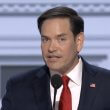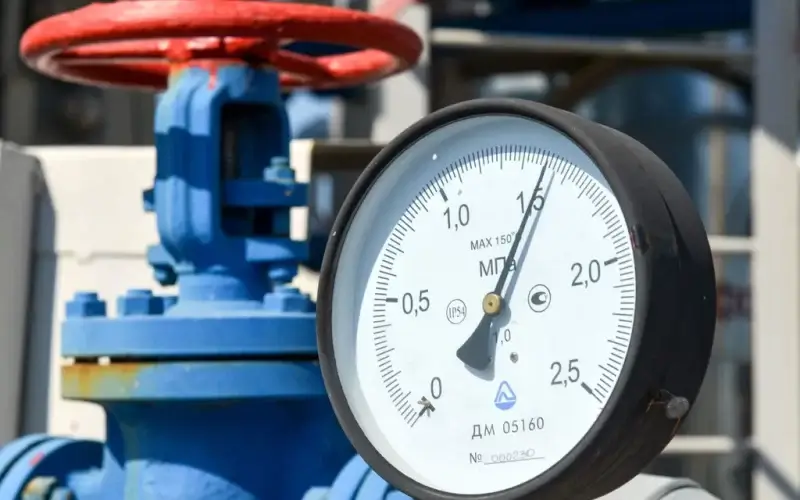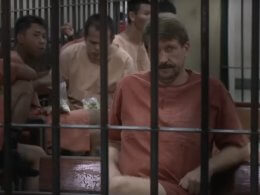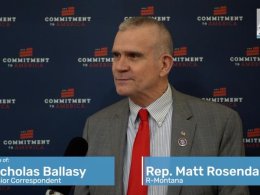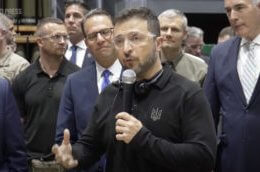For many EU leaders, spiking inflation, especially in the cost of energy and food, is proving to be a scarier enemy than Russian President Vladimir Putin.
The proof is in the now 25 days — and counting — they have failed to reach an agreement on banning Russian oil imports, which would jack up consumer prices even more.
Diplomats in Brussels continued to struggle on Sunday to clinch a last-hour compromise ahead of a European Council summit. Once again, they came up short. A European Commission official said a deal was expected later this week, but other officials and diplomats said there was a collective lack of acute urgency that reflected deep ambivalence in many capitals about the oil embargo.
Even if EU heads of state and government arrive for their summit sheltered from embarrassment by whispers of a tentative accord, the nearly month-long delay to adopt the oil ban — and the excruciating process to devise exemptions and compensation for hold-out nations — has provided a stark illustration of how leaders rank the threats they now face.
Putin’s armies may or may not destroy Ukraine, but rising voter anger over soaring consumer prices poses a far more immediate danger of getting European politicians voted out of office.
And though preserving Ukraine’s territorial integrity is a much-professed priority, it has not been as great an imperative in recent days as preserving the “level playing field” of the EU’s own single market, which would be tilted by a compromise plan to ban Russian oil delivered by tankers while still allowing oil to flow via pipeline.
Some countries heavily reliant on seaborne oil, as well as those with big petroleum shipping businesses, initially resisted the exception for pipeline oil, which like other exemptions is intended to be temporary in nature.
And even on Sunday evening, some Western European countries complained bitterly that the pipeline exemption would unfairly benefit countries like Germany and Poland that aren’t at risk of fuel shortages — granting them unfair economic advantage.
The EU’s inability to agree on cutting off one of the most vital revenue streams used by the Kremlin to finance the war has come as Russian forces slowly but surely churn ahead in their bid to conquer all of Ukraine's eastern Donbas region. Ukrainian cities and villages are being flattened as EU officials bicker over how to divide up some €2 billion being set aside for energy transition, and as countries accuse each other of exploiting the war for economic advantage.
With Ukraine’s military taking heavy losses and innocent civilians dying every day, Ukrainian officials are quietly seething with outrage, particularly over suggestions from some EU capitals, including Paris and Rome, that Kyiv should be willing to make concessions, potentially even surrendering territory, to end the war. French President Emmanuel Macron has even cited a need to avoid any “humiliation” of Russia.
“It’s hypocrisy to a great extent — it’s internal stuff,” a senior Ukrainian diplomat said.
The Ukrainians are mostly refraining from overt public denouncements of Western partners who are providing crucial weapons and billions in emergency economic assistance.
Privately, however, they are livid and deflated — fearful that the stalling on oil will only mean further disappointments when it comes to sanctioning Russian gas and, especially, when it comes to Ukraine’s hope to be designated officially as an EU candidate country at the European Council’s June summit.
The senior Ukrainian diplomat said that the EU should return to its core roots and principles — not only by cutting off all Russian energy revenues by banning oil and gas, but also by quickly granting Ukraine’s candidate status. Instead, however, the energy embargo is stuck, and countries like the Netherlands and France are trying to lower expectations of any positive decision on membership.
“Basically what we are doing is we are now bringing the EU back to where it started as a peace project,” the senior Ukrainian diplomat said. “So to generate peace, to generate security, in a broader sense, they [should] take responsibility.”
So far, though, it is unclear whether EU leaders are willing to embrace such responsibility. That's despite evidence of war atrocities by Russian forces, and Putin’s historical track record of never settling any post-Soviet conflict but rather using military force and political extortion, such as issuing Russian passports on occupied territories of Ukraine, Georgia and Moldova, to extend his sphere of influence.
In Brussels, diplomats on Sunday evening said they would work through the night and convene again on Monday morning in hopes of reaching a deal, But several said the technical complexity of granting exemptions and compensation would likely require several more days of work.
Some member countries remain fixated on the possibility that Germany and Poland will gain economic advantage from an exemption for pipeline oil, since there is no risk that their supplies will be cut off, or run dangerously low. Hungary, by contrast, relies on a pipeline that crosses Ukraine and therefore is inherently vulnerable to being damaged or blocked.
While Hungarian Prime Minister Viktor Orbán has posed the chief obstacle to an agreement on oil sanctions — by demanding extra time to phase in the oil embargo as well as steep financial compensation to help transition to alternative energy sources — many other countries quietly appreciate his stalling, according to numerous EU officials and diplomats.
The oil embargo is part of a sixth package of sanctions against Russia since Putin began his failed attempt to take Kyiv on February 24, and many EU officials are quick to note the speed and success in achieving needed unity on the earlier measures.
Indeed, the prospect of finding alternative energy supplies after decades of reliance on Russia was long expected to be difficult, and the process is even more painful given consumer prices were soaring independently of the war — due to an array of economic disruptions, including supply chain problems, that grew out of the coronavirus pandemic.
But EU leaders have also found a variety of ways to weasel out of taking painful steps. The sixth package also includes measures to cut off Sberbank, Russia's largest consumer bank, from the SWIFT international payments system, as well as sanctions on military officials responsible for atrocities in Bucha and other Ukrainian towns, and on Patriarch Kirill, the Russian Orthodox Church leader who has endorsed Putin's war.
EU countries could easily have advanced the other components of the sixth package without waiting for the oil sanctions, but insisted that it should be kept together, delaying all the penalties. EU countries also could have decided individually to stop buying Russian oil — eliminating any need for the messy debate.
"We can collectively say that we will finish using Russian oil by the end of 2022," a senior EU diplomat said, stressing this point on Thursday evening. "So you know that's one way of approaching it. In fact, if all of us would have concluded that, then you don't even need a sanction because a decision has already been taken."
But rather than act decisively, member countries have continued to argue — including over whether the conclusions for the upcoming European Council summit should contain language calling for a ceasefire in Ukraine. While every capital wants peace, there are sharp disagreements over whether to suggest that any ceasefire would be acceptable without a full Russian withdrawal.
A second senior EU diplomat defended the bloc’s record in responding to the war, saying that European countries were tackling all the difficult issues and that journalists were overly focused on sanctions.
"The EU [and its member states] do not lose the broader picture," this diplomat said. “We are continuously working on different particularities related to the war: financial support to [Ukraine], food security, support for refugees, etc. It can be also clearly seen from the Council’s [and ambassadors'] agenda. So perhaps media consider the sanctions more attractive to follow.”
However, other diplomats have not tried to disguise the fact that the delay in the oil embargo has been convenient for some countries, and also helped postpone a more complex discussion on banning Russian gas.
"Gas is going to be even more difficult," the first senior EU diplomat said, adding that the complexities of the oil embargo have yet to be worked out. "If we want a carve-out for one or two member states for specific security of supply reasons, we should make sure that legally ... we'll do it in such a way that we'll not have more damage done to the internal market than we intended to do," the diplomat said. "So it has to be done very carefully. And this is a technical, legalistic issue, and this we are still working on."




